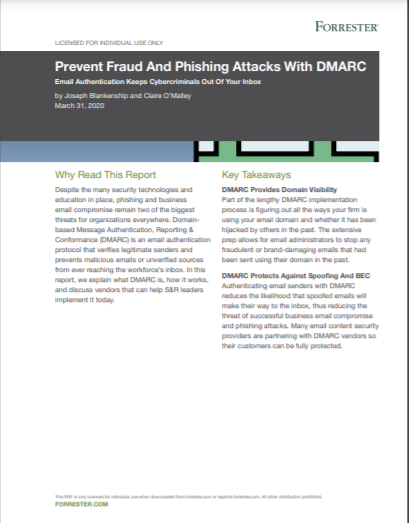Fear of Delta variant prompts new COVID phishing scams
Increase in email attacks taking advantage of vaccine requirements by businesses


Security researchers have detected a significant increase in email attacks and scams taking advantage of increased fears of Delta variant spread and vaccine requirements in businesses.
According to Proofpoint security researchers, hackers have sent fake employment termination emails to and spoofed emails from HR with vaccination status forms. The emails’ goals were to spread dangerous malware and steal company login details.
Researchers said there has been a marked increase in COVID-19-related threats since late June 2021. Hackers spread RustyBuer, Formbook, and Ave Maria malware, and launched multiple corporate phishing attempts to steal Microsoft and Office 365 credentials.
The increase in coronavirus scams has aligned with public interest in the highly contagious COVID-19 Delta variant. According to global Google Trend data, global searches for “Delta variant” first peaked last week and have continued growing through August 2021.
Researchers saw tens of thousands of phishing messages intended for recipients in various industries worldwide. They also observed multiple high-volume COVID-19-related credential-theft campaigns, including a Microsoft credential-theft campaign targeting thousands of organizations globally. The messages masqueraded as vaccination self-compliance reports sent by the target entities’ human resources divisions.
As many major American companies began requiring employees to be vaccinated before returning to the office, researchers warned that “it is likely this type of lure theme will be used by threat actors”.
RELATED RESOURCE

Prevent fraud and phishing attacks with DMARC
How to use domain-based message authentication, reporting, and conformance for email security
The emails had similar characteristics, including claiming to be from HR departments and COVID-related subject headers, such as “Covid-19 Vaccination Self Compliance Report.” The messages contained a URL that likely leads to a fake Microsoft authentication page that harvests user credentials.
Sign up today and you will receive a free copy of our Future Focus 2025 report - the leading guidance on AI, cybersecurity and other IT challenges as per 700+ senior executives
Researchers also saw a high-volume Formbook campaign sent to hundreds of organizations posing as a human resource professional. The emails contained a .ZIP file (e.g. Scan.Salary.zip) and told the recipients their jobs are being eliminated due to the financial impact of COVID-19.
“To further entice the recipient to open the malicious file, the email states a ‘2 months salary receipt’ is attached. The emails contain a malicious .ZIP attachment, that when extracted and executed leads to the installation of Formbook malware. This campaign consisted of over 7,000 emails intended for a broad spectrum of organizations,” researchers said.
Researchers added that based on past behavior, media attention increases the likelihood actors will shift back to broader adoption of COVID-19 as social engineering material and localize that material to their prospective regions.
“It is possible more threat actors will begin to use the virus as a lure in future campaigns while infection rates and interest in the virus and protective measures remains high,” the researchers added.
Rene Millman is a freelance writer and broadcaster who covers cybersecurity, AI, IoT, and the cloud. He also works as a contributing analyst at GigaOm and has previously worked as an analyst for Gartner covering the infrastructure market. He has made numerous television appearances to give his views and expertise on technology trends and companies that affect and shape our lives. You can follow Rene Millman on Twitter.
-
 UK government confirms October cyber breach: Everything we know so far
UK government confirms October cyber breach: Everything we know so farNews Details around Foreign Office hack remain sparse and government says it's unclear who is behind the attack
-
 Data center investment reached a record $61 billion this year
Data center investment reached a record $61 billion this yearNews Hyperscaler expansion, private equity interest, and a surge in debt financing are behind skyrocketing investment levels
